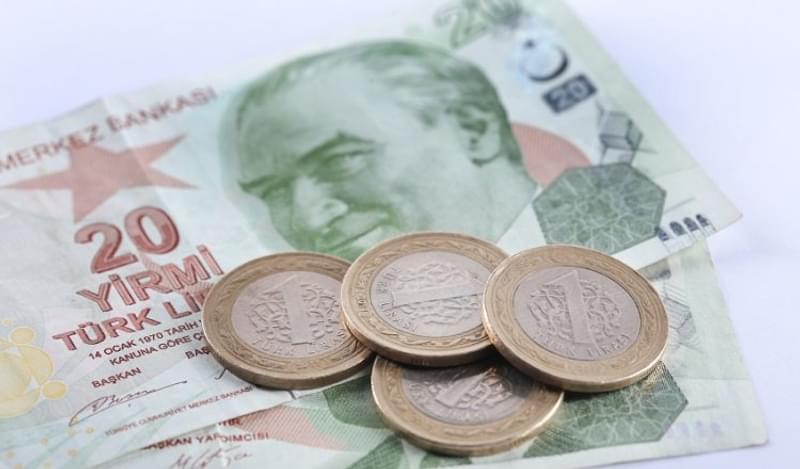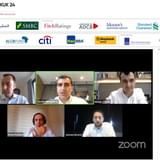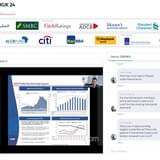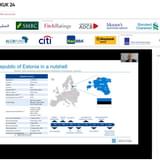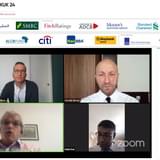Turkey’s inflation peaked last month at 11.87 % year-on-year in April from 11.29% in March, data from the Turkish Statistics Institute (TÜİK) showed, which represent the highest increase in Consumer Prices in nearly a decade.
The increase was more dramatic in certain categories and lower in others. In food and housing, which account for 24% and 15% of the consumer basket, respectively, the increase stood at 8.7% and 7.4% respectively. Transport and tobacco-alcohol categories, which make up 14% and about 6% of household budgets, respectively, went up 18% and nearly 22%.
The rise in individual goods in the producer basket is even more noticeable. In the textile category, which accounts for about 9% of the basket, year-on-year price increases were close to 18%. For iron, steel and other metals, it stood at a whopping 44%.
“There are several factors behind the very recent spike in food inflation, including the fall in the lira earlier in the year, bad weather which pushed up food inflation, and a rise in petrol inflation. We think these factors should all unwind in the coming months, bringing inflation down from double-digit rates,” William Jackson, Senior Emerging Markets Economist at Capital Economics explained.
However even if food inflation is supposed to decline, all-in inflation in the country has averaged 8%, missing the Central Bank target of 5% consistently since 2011.
The “Treason” of Erdogan’s Rates
Numbers are just one part of the problem. The biggest challenge the Central Bank will have to face is to put in place the mechanisms to tackle inflation without the intervention of the central government.
“Underlying price pressures in Turkey are very strong. This appears to be a result of political pressure from the government – that vocally demands lower interest rates – which has caused monetary policy to be too loose. That, in turn, has resulted in inflation expectations becoming unanchored," Jackson explained.
Faced with this dilemma, the Central Bank has tightened monetary policy more aggressively this year. In April, it increased the interest rate used for about 90% of recent funding to commercial lenders, a decision that gives it additional flexibility in case of future pressure on the lira. The bank raised the late liquidity window rate by 50bp to 12% in May, and has forced local lenders to use this previously little window, which is more expensive than Turkey’s three other key rates, pushing borrowing costs to the highest levels in almost five years.
“The anticipation that the 12-month headline inflation will accelerate further by June led the Central Bank to unexpectedly hike its late liquidity window lending rate, which somewhat eased investors’ concerns about Central Bank independence, helping the lira recover some of its recent losses. Judging by the stability achieved in the lira exchange rate, the Central Bank’s moves since December have been quite effective to limit the exchange rate pass-through to inflation over the coming months, assuming that the lira will remain stable around its current levels,” said Ugras Ulku, Deputy Chief Economist at the Institute of International Finance.
The unorthodox move of hiking the cost of borrowing but leaving its policy rate did help the ailing lira, but this does nothing to allay any fears of the Central Bank’s independence being breached down the line.
“It’s certainly helped to stabilise the lira, which will help to reduce inflation. However, I think monetary policy will need to remain very tight for some time in order to reduce longer-term inflation expectations. It’s not clear if this will happen – President Erdogan has already stated that he will take steps to lower interest rates, even though it’s not his job to do so, and usually, the Central Bank responds to this kind of pressure” Jackson concluded.
President Recep Tayyip Erdogan has been very vocal about his disdain for high-interest rates; tackling the high cost of credit, not inflation, has become a crucial part of his agenda. The leader once equated high-interest rates with treason.
“People have been voicing complaints about high-interest rates. This is on my agenda, and I will keep it. I see high interest rates as a tool of exploitation,” Erdogan said a general assembly of the Union of Chambers and Commodity Exchanges (TOBB) in Ankara on 24 May. His latest comments will do little to reassure investors of the ability of the Central Bank to keeps the government's pressures at bay.
These developments have not gone unnoticed by the rating agencies, either: Moody’, S&P, and Fitch cut Turkey’s sovereign debt to “junk” this year.
That said, it could be argued the Central Bank is now facing a crucial crossroad as sustained inflation could cripple Turkey's economy.
“The recent spike in inflation is likely to have eroded real income growth and consumer spending. The response in the form of higher interest rates may weigh on bank lending. There may also be longer-term economic costs too because higher inflation is likely to raise the real interest rates facing borrowers, which will depress investment,” Jackson explained.
In Need of Reforms
Turkey is running out of options. Analysts agree the country needs to maintain a tight fiscal policy and implement a series of critical reforms to boost productivity and maintain fiscal discipline.
“With lagging productivity signalling the limits of macro-policy tinkering, accelerated reforms will be critical to boost Turkey’s potential growth and to reduce its external fragility. Achieving stronger growth over the medium-term will depend on reforms to shift away from a growth model overly reliant on domestic spending financed by foreign borrowing to a more export-oriented one. This will require reforms to boost productivity, competitiveness, and domestic savings,” Ulku said.
Higher and sustainable output growth requires prudent policies to underpin price stability, to maintain fiscal discipline, and to raise domestic savings, he explained.
“A continued robust fiscal position as well as maintaining a tight monetary policy stance to better anchor inflation and inflation expectations around the 5% target would encourage higher savings and reduce Turkey’s reliance on external funding to finance its investment,” Ulku concluded.
Turkey was once one of the most promising countries in the emerging market world, however, as it stands on the brink of what can could result in a financial crisis, the resilience of the Central Bank will be closely watched. Controlling inflation and servicing Erdogan’s political agenda are two objectives increasingly at odds.
